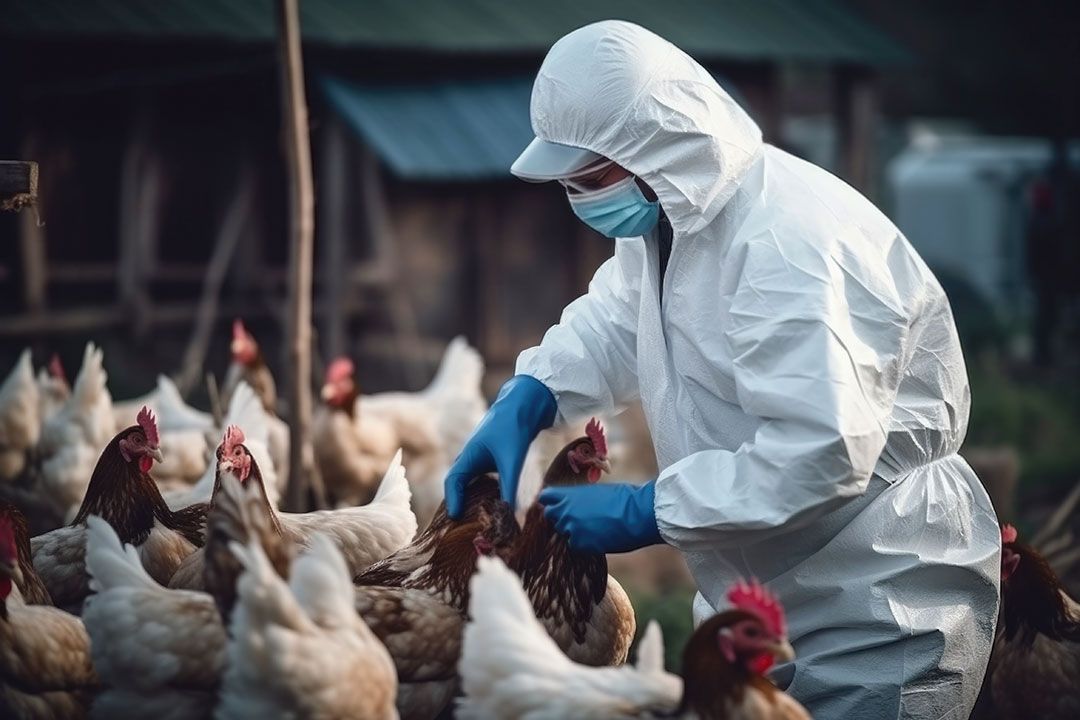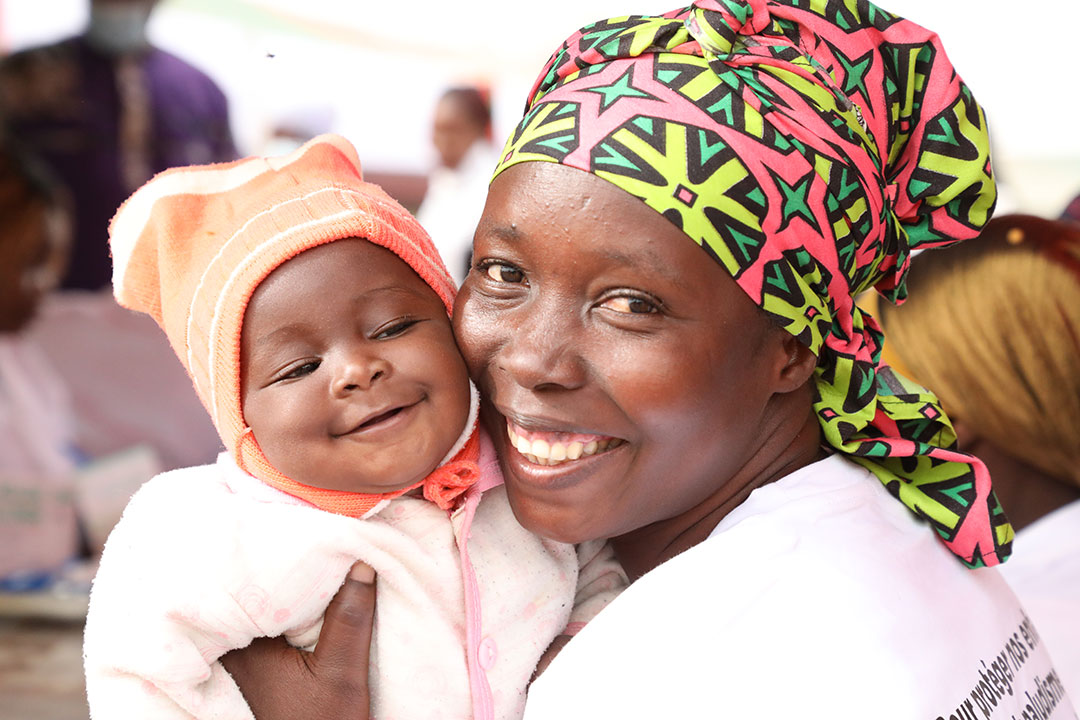Sierra Leone anticipates imminent immunisation campaign against malaria, the country’s number one child killer
Vaccines will begin to roll out on 25 April in Sierra Leone – not a moment too soon for a country in which malaria accounts for half of all childhood hospital visits.
- 22 April 2024
- 6 min read
- by Umaru Fofana

Sulaiman lies on a bed in the intensive care unit of Ola During Children's Hospital (ODCH) in Freetown, Sierra Leone's main paediatric facility. He looks emaciated and weak. His mother gazes at him in consternation, intermittently wiping away tears. She is not sure whether her child will die or pull through. It's been one week since the boy was admitted.
The four-year-old is one of many children in the throes of malaria in Sierra Leone – the country's biggest killer. According to Dr Freddie Coker, Consultant in charge of the critical care unit at ODCH, "More than 50% of all children brought to the hospital are malaria cases." Nationwide, 47% of outpatient visits to hospitals by children aged under five are for malaria, and malaria is responsible for an estimated 37.6% of hospitalised cases.
An estimated 2.7 million Sierra Leoneans fell ill with malaria in 2022, according to the 2023 World Malaria Report. About 8,200 of them died.
Some of the children here are brought in after the plasmodium parasite has already wreaked havoc on their fragile systems . A seven-year-old boy lying on a nearby bed to Sulaiman's knows that all too well. He has a kidney-related illness as a result of malaria, medics say, as they battle to stabilise him.
"Malaria is the number one killer of under-five children in Sierra Leone," Dr Coker says, adding that poverty makes it more difficult for many of the children to receive early or adequate treatment.
There is a free health care system for pregnant women and children aged under five years in Sierra Leone's under-resourced public hospitals . But for many, even the transport fare to the hospital might as well be a fortune.
On a bed at the emergency unit at the ODCH lies six-month-old Abdul Bangura. Doctors say he is "severely anaemic" after a serious bout of malaria, and is undergoing a blood transfusion. As red liquid drips down through the tubes, his mother, YaAlimamy Bangura, looks on, bewildered.
The Registrar of the Emergency Unit, Dr David Jongo, says it is common for parents to report with their sick children when their condition is at an advanced stage. "Many times, they come with different complications," he says, and admits that malaria is a "very serious issue with 90% of children we receive testing positive" for it even if he cautions that the rapid testing done for the parasite does not produce a 100% accuracy.
"Malaria accounts for the highest morbidity and mortality in Sierra Leone," says Dr Abdul Mac Falama, the Manager of the country's Malaria Control Programme. He adds that the numbers are still very high even though "significant progress has been made in the last ten years". The most recent Malaria Indicator Survey, which was done in 2021, shows that malaria prevalence in the country was almost halved from 43% to 22%, with the north of the country still lagging far behind.
But an estimated 2.7 million Sierra Leoneans still fell ill with malaria in 2022, according to the 2023 World Malaria Report. About 8,200 of them died.
Have you read?
The disease kills mostly children and the aged "due to the weakness in their immune system", says Dr Falama, adding that pregnant women are also extremely vulnerable.
In the northern Koinadugu District, about one in every three people has malaria at any given moment. Dr Falama says one of the reasons for this is the lack of access to care in the mountainous region, which is further isolated by a poor road network. The health facilities in the district are struggling for resources, including medicines, facilities and staff, he says, and residents exhibit poor health-seeking behaviour due to traditional beliefs that make them wary of venturing to clinics .
Malaria still accounts for 20% of all under-five deaths in the country, according to Dr Falama. With facilities struggling to get the needed supplies of drugs and personnel, it is worse in rural areas.
“I have been battling with malaria since I was a kid, and it has become a part of my existence, unfortunately.”
– Mohamed Jalloh, 36
He stressed the need for a malaria vaccine, which he says will be a "game-changer". The vaccine will complement rather than supplant current malaria-prevention activities, like the use of bed-nets, environmental control and malaria chemoprevention, but Dr Falama anticipates the addition of this additional layer of protection will prove hugely significant.
"The child's first two years will be full of medical interventions that could make malaria a thing of the past sooner than anybody can imagine," Dr Falama said.
Currently, children receive Fansidar, an antimalarial medication composed of sulfadoxine and pyrimethamine, in their first 14 weeks of life. That will soon be immediately followed by three doses of the vaccine before the child is nine months old.
"That will be followed by the last vaccine at 18 months, which will strengthen their defence mechanism against malaria," he said.
Sierra Leone has also instituted some interventions for adults. For example, malaria testing and treatment are free for all age categories at public hospitals. But moving patients from home to a nearby health facility is a challenge for many indigent families. And sometimes when patients report to health facilities, they have to buy drugs at pharmacies outside the unit, because the free drugs are not always available at the hospital's dispensary.
"Some of the parents who bring in sick children are so poor that they don't even have food to eat themselves, let alone to feed the children with," says Dr Coker.
But it is not just children who risk suffering with malaria. Mohamed Jalloh lies in a ward at the country's main referral hospital, Connaught. Hot with fever and with yellow eyes, the 36-year-old father of two gasps for breath. The test result confirms malaria.
"I have been battling with malaria since I was a kid, and it has become a part of my existence, unfortunately," he says. As he tries to sip some water, he can barely swallow the liquid. His appetite is almost nonexistent. Medics try to run an intravenous intervention if only to rehydrate him first.
The situation is similarly dire at the Princess Christian Maternity Hospital. Several pregnant women in wards are running high fevers. The battle is on to tame the malaria parasite and protect them and their unborn babies. One woman exhibits all the signs that the disease is in charge. She sweats even when the temperature in the ward isn't warm. Panting on the bed, she says, "I am concerned as much for myself as I am about my unborn child." The 31-year-old, who prefers to remain anonymous, is already reeling from the loss of her child to malaria when he was just three. In the last ten years she also lost two siblings to malaria.
The head of the country's Malaria Programme, Dr Falama, believes this will be a thing of the past "when we complement our existing interventions with the vaccine doses, some of which are already here [in the country]". The roll-out is expected to commence, at last, this week.
For four-year-old Sulaiman receiving treatment at the ODCH hospital, the vaccine may be coming too late. But the many pregnant women at the maternity hospital cannot wait for the jab to become available.





